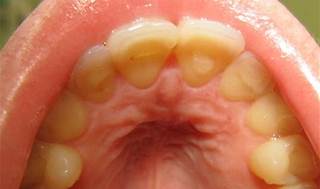A nurse is assessing a client with possible bulimia nervosa. Which findings would support this diagnosis? Select all that apply.
Recurrent episodes of binge eating.
Inappropriate compensatory behaviors to prevent weight gain.
Normal or slightly above normal body weight.
Sense of lack of control over eating.
Acknowledgment of the problem.
Correct Answer : A,B,C,D

The correct answer is a. Recurrent episodes of binge eating, b. Inappropriate compensatory behaviors to prevent weight gain, c. Normal or slightly above normal body weight, d. Sense of lack of control over eating.
Choice A rationale:
Recurrent episodes of binge eating are a key diagnostic criterion for bulimia nervosa. This involves consuming a large amount of food in a short period while feeling a lack of control over eating.
Choice B rationale:
Inappropriate compensatory behaviors, such as self-induced vomiting, misuse of laxatives, fasting, or excessive exercise, are used to prevent weight gain and are essential for diagnosing bulimia nervosa.
Choice C rationale:
Individuals with bulimia nervosa often maintain a normal or slightly above normal body weight, which can make the disorder less noticeable compared to anorexia nervosa.
Choice D rationale:
A sense of lack of control over eating during binge episodes is a critical feature of bulimia nervosa.
Choice E rationale:
Acknowledgment of the problem is not a diagnostic criterion for bulimia nervosa. Many individuals with bulimia may not recognize or admit they have a problem.
Nursing Test Bank
Naxlex Comprehensive Predictor Exams
Related Questions
Correct Answer is B
Explanation
Choice A rationale:
Monitoring vital signs and weight may be relevant in the assessment of a patient with an eating disorder, especially if their condition has led to physical complications. However, it is not the primary nursing responsibility in this context. The emotional and psychological aspects of care are of higher priority.
Choice B rationale:
Providing emotional support and promoting self-esteem is crucial in the assessment of a patient with an eating disorder. Patients with eating disorders often struggle with body image issues and low self-esteem. Offering emotional support can help build a therapeutic relationship and create a safe environment for the patient to express their feelings and concerns.
Choice C rationale:
Assessing nutritional needs and developing a meal plan is indeed important in managing eating disorders. However, in the context of assessment, it is a secondary responsibility that comes after addressing the patient's emotional well-being. Establishing trust and understanding the psychological factors at play are fundamental before delving into nutritional planning.
Choice D rationale:
Respecting the patient's beliefs and values is a fundamental aspect of nursing care across all contexts, including eating disorders. While respecting beliefs and values is essential, it is not the primary nursing responsibility specifically in the assessment phase of a patient with an eating disorder.
Correct Answer is ["B","C","D","E"]
Explanation
Choice A rationale:
Monitoring vital signs and weight is important, but it primarily falls under the medical management of the patient's condition rather than within the scope of nursing interventions for promoting psychological well-being in a care plan for eating disorders.
Choice B rationale:
Providing positive reinforcement for eating is appropriate as patients with eating disorders often struggle with food-related anxieties. Positive reinforcement can encourage them to establish healthier eating habits and reduce fear around food.
Choice C rationale:
Teaching coping skills and stress management techniques is essential. Many patients with eating disorders use disordered eating behaviors as coping mechanisms. Providing alternative coping strategies can help them manage stress without resorting to unhealthy behaviors.
Choice D rationale:
Involving the family in the treatment process can be beneficial. Eating disorders can affect not only the individual but also the family dynamics. Educating the family about the disorder, its triggers, and how to provide support can contribute to the patient's overall recovery.
Choice E rationale:
Respecting the patient's beliefs and values is crucial in building trust and rapport. It helps create a patient-centered approach that considers their individual preferences and cultural factors when developing and implementing the care plan.
Whether you are a student looking to ace your exams or a practicing nurse seeking to enhance your expertise , our nursing education contents will empower you with the confidence and competence to make a difference in the lives of patients and become a respected leader in the healthcare field.
Visit Naxlex, invest in your future and unlock endless possibilities with our unparalleled nursing education contents today
Report Wrong Answer on the Current Question
Do you disagree with the answer? If yes, what is your expected answer? Explain.
Kindly be descriptive with the issue you are facing.
